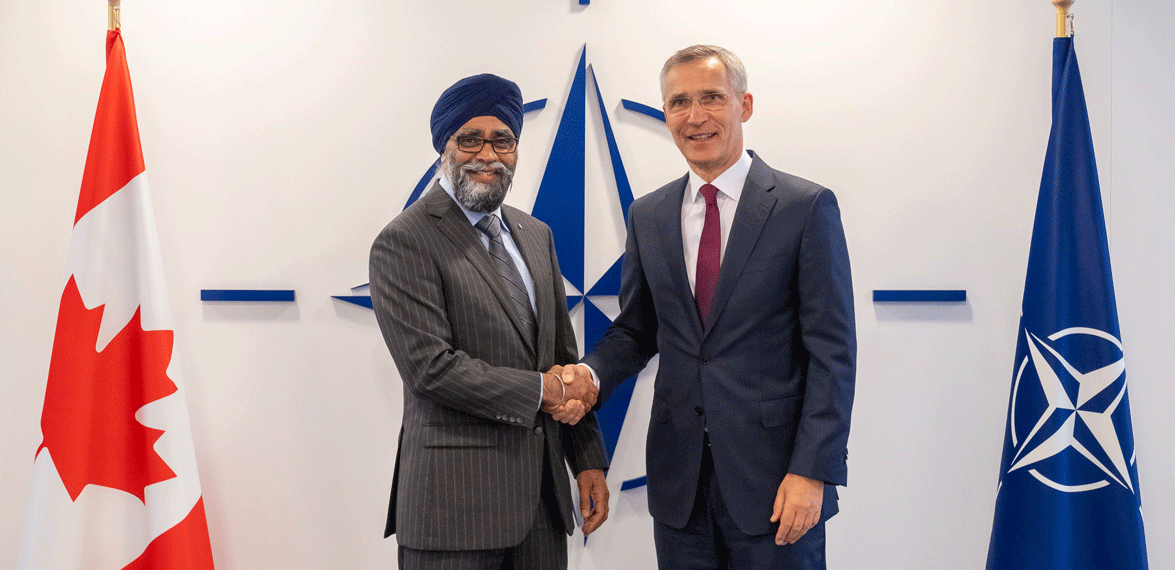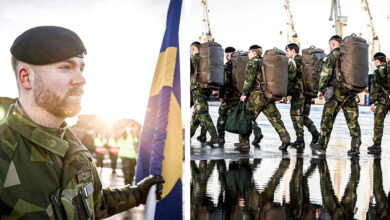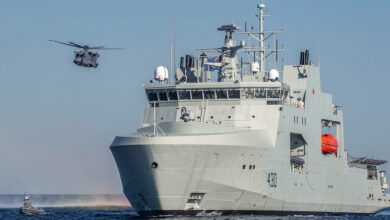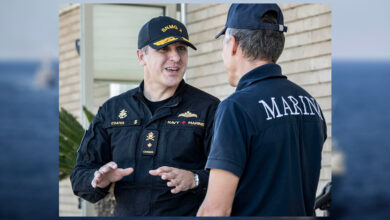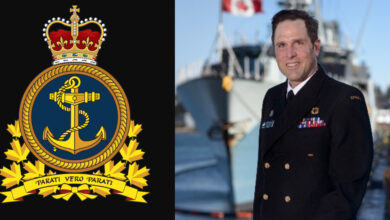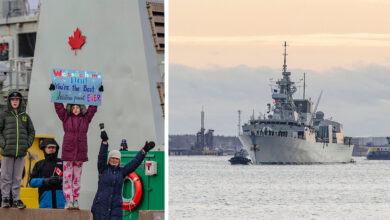Operations
Canada continues to contribute to NATO at NATO Defence Ministers’ meeting
Last week the Defence Minister Harjit S. Sajjan concluded a successful trip to the NATO Defence Ministers’ Meeting in Brussels, where he participated in discussions on several issues including burden sharing, the NATO Space Policy, and the Intermediate-Range Nuclear Forces Treaty.
During the two day meeting, Minister Sajjan reiterated Canada’s contributions to NATO, including Canada’s agreement to extend its command of NATO Mission Iraq for a second year, Canada’s new role in command of the Standing NATO Maritime Group Two, and the deployment of an Air Task Force for another four months.
Last week Canada announced it would command NATO Mission Iraq for a second consecutive year, until November 2020, maintaining a leading role in helping Iraq advance security and stability.
The current commander Major-General Dany Fortin will transfer command to Brigadier-General Jennie Carignan this the fall. Carignan will be promoted to the rank of Major-General.
This past June it was announced that CAF member, Commodore Josée Kurtz would take command of the Standing NATO Maritime Group Two (SNMG2), on behalf of Canada. SNMG2 is one of four multinational, high readiness maritime forces composed of vessels from various allied countries. The vessels are permanently available to NATO to perform different tasks ranging from participation in exercises to operational missions.
This fall an Air Task Force comprised of Royal Canadian Air Force (RCAF) personnel and CF-18 Hornets will return to Romania from September to December 2019. It will be the RCAF’s fourth deployment to Romania since 2014, demonstrating Canada’s ongoing commitment to NATO and a close Ally.
NATO’s enhanced Air Policing is a peacetime collective defence mission, which safeguards the integrity of the Alliance’s airspace. It is part of NATO assurance and deterrence measures introduced in 2014.
“Canada will always seek to uphold peace, security and the rules-based international order alongside our NATO Allies and trusted partners in Europe, and around the world. I’m proud of the contributions of our women and men in uniform, which are a testament to our unwavering commitment to the Alliance,” stated the Minister of National Defence Harjit S. Sajjan in a press release.
The minister also highlighted the partnership between the Department of National Defence’s MINDS program and the NATO Defense College (NDC), to offer an annual five-month fellowship to expert members of Canada’s defence and security community over the next five years.
Currently, there are approximately 915 CAF personnel deployed on Operation REASSURANCE, which includes approximately 240 sailors on board a frigate, 540 soldiers leading a NATO enhanced Forward Presence Battle Group in Latvia and 135 Royal Canadian Air Force and five CF-188 Hornet aircraft participating in NATO enhanced Air Policing.
The operation is the Canadian Armed Forces’ support to NATO assurance and deterrence measures in Central and Eastern Europe. As part of Operation REASSURANCE, Canada has established its largest sustained military presence in Europe in over a decade by leading a multinational NATO battlegroup in Latvia.
While in Brussels, Minister Sajjan met with NATO Secretary-General Jens Stoltenberg to discuss ongoing work at NATO to strengthen burden-sharing and to improve readiness.
The Minister also met with Latvian Minister of Defence Artis Pabriks and presented him with a Lee Enfield rifle, as part of a donation of 120 deactivated rifles to the Latvian Defence Forces, for use in Latvian military ceremonies.
Since the end of the Cold War, NATO has contributed to international security by conducting military missions and operations, in countries including the Balkans, Afghanistan, and Libya.
NATO has contributed to international efforts to confront the growing threat posed by emerging security challenges such as terrorism and cyber-attacks.
The press release also noted “NATO membership affords Canada an effective political-military instrument that helps it meet its strategic defence and security objectives at home, in North America and abroad. It also provides an important international forum in which to engage other nations on defence and security issues through NATO’s partnership programs.”



